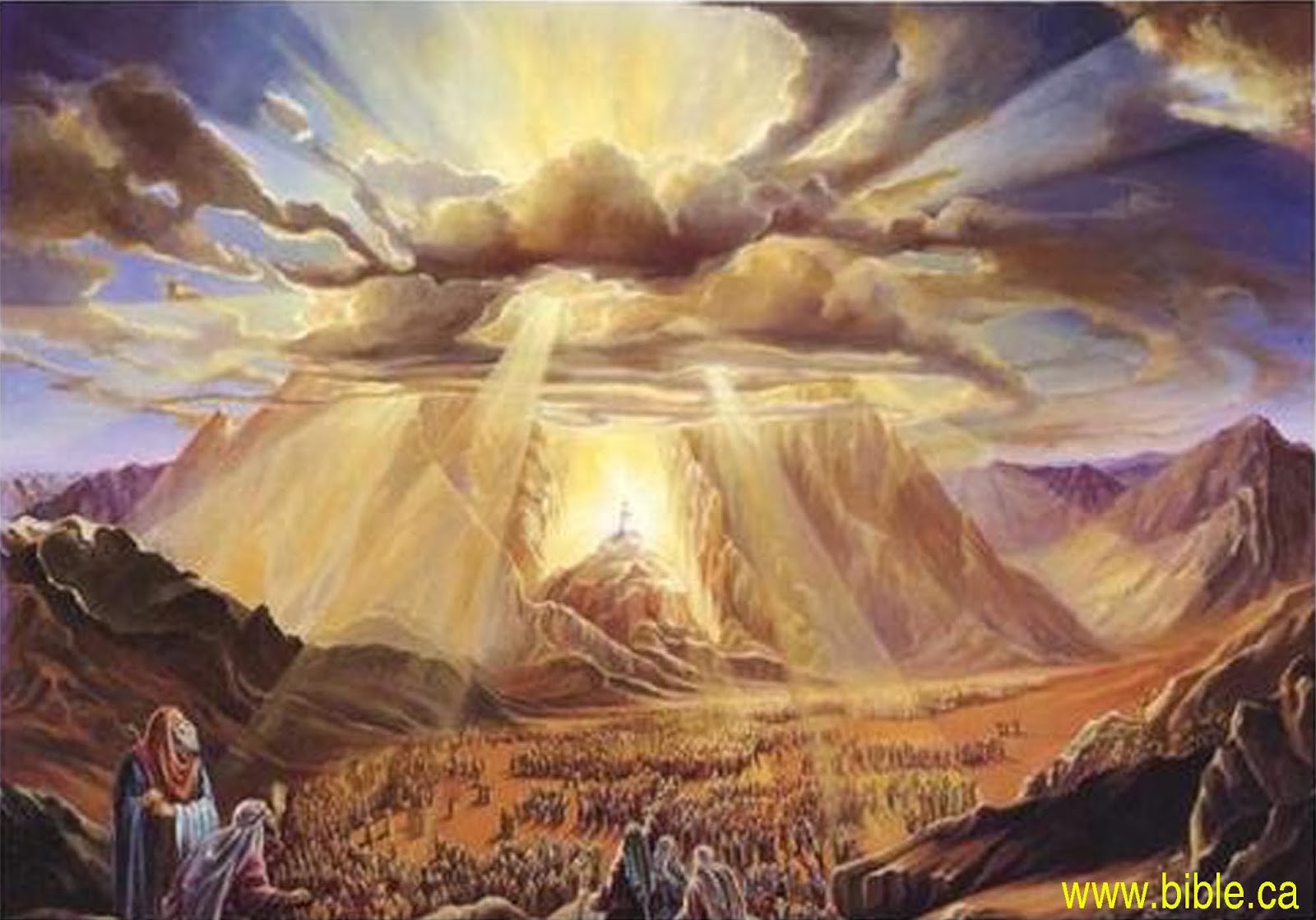Fear, But Don't Be Afraid.
 |
| Google Images |
All the preparations have been made. The people have done all that they were instructed to do. A people, described by God as one that would become “...a kingdom of priests and a holy nation” (Exodus 19:6) awaits the message God has for it. The phrase is remarkably like 1 Peter 2:5: “...you also, like living stones, are being built into a spiritual house to be a holy priesthood, offering spiritual sacrifices acceptable to God through Jesus Christ.” This was what God wanted—and still wants—of His children.
Moses comes down from a mountain whose display of light and sound has left the people below terrified (Exodus 19:16). He delivers the message known to us as the Ten Commandments. Each one is huge in itself. But it is the first phrase that grabs my attention this morning: “I am the Lord your God, who brought you out of Egypt, out of the land of slavery” (Exodus 20:2).
Would the people have remembered how Moses introduced himself to them when he appeared in Egypt and they asked who had sent him? God had instructed him to answer that question by saying, “I AM WHO I AM sent me” (Exodus 3:14). Certainly they would still remember all that this great “I AM” had done to rescue them from servitude, to renew the covenant that He had once made to their forefathers, to take them back to the land He had promised to give them, and to make them a nation through which all the world would be blessed (Genesis 12:2, 3).
It was this “I AM” who now would lay the foundation for nationhood by giving to His people their guidebook for daily living, the rules that would bring order out of chaos, that would set the standards for a people who were to be as holy as the God who had delivered them, to be able to represent appropriately this great “I AM” to the nations around them. God had rescued them for a purpose, a purpose that is outlined in verses such as Ephesians 2:10, “For we are God’s workmanship, created in Christ Jesus to do good works, which God prepared in advance for us to do.”
God was about to create a holy nation and a royal priesthood out of a rabble of ex-slaves. He had rescued them for that purpose. As we translate that picture to our experience we realize that God saved us for that same purpose, to make us into that spiritual house, that holy people that bring glory to His name. This is the “good work” that He has planned for us.
What was Israel required to do? What are we required to do in order to become what God has purposed for us?
After God identified Himself to the Israelites, He laid out the guidebook that they needed to follow if they were truly to become that holy nation prepared to minister to others. In general terms these commandments are the “good works” that will turn an unholy rabble into a holy house.
Like Israel, I don’t keep these perfectly. As I read through the commandments again this morning, I could identify weaknesses in the “spiritual house” of my life.
The reaction of the Israelites to this list of commands is interesting. The light and sound display frightened them (20:18) perhaps more than the implications of the orders they had just been given. But Moses’s words bring a new light to the reason behind the light show.
“Moses said to the people, ‘Do not be afraid. God has come to test you, so that the fear of God will be with you to keep you from sinning’” (20:20). It seems like a contradiction. He tells them not to be afraid, but to be afraid.
God gave them, and us, the guidebook that will take us toward becoming all that God meant us to be. That’s an expression of His grace, His mercy, His love. He cares enough to want the best for us. At the same moment that we bask in the glow of that love, we are reminded that He is the “I AM” and that there are consequences to the waywardness that takes us from the best He has planned, to the worst that we choose to do. We are dealing with both a loving Father and Almighty God, Creator and Sustainer of the universe.
Psalm 111 encapsulates both of these sides of God’s being:
“Praise the Lord. I will extol the Lord with all my heart in the council of the upright and in the assembly. Great are the works of the Lord; they are pondered by all who delight in them, Glorious and majestic are his deeds, and his righteousness endures forever. He has caused his wonders to be remembered; the Lord is gracious and compassionate. He provides food for those who fear him; he remembers his covenant forever. He has shown his people the power of his works, giving them the lands of other nations. The works of his hands are faithful and just; all his precepts are trustworthy. They are steadfast for ever and ever, done in faithfulness and uprightness. He provided redemption for his people; he ordained his covenant forever—holy and awesome is his name. The fear of the Lord is the beginning of wisdom; all who follow his precepts have good understanding. To him belongs eternal praise.”
Yes, indeed!



Comments
Post a Comment